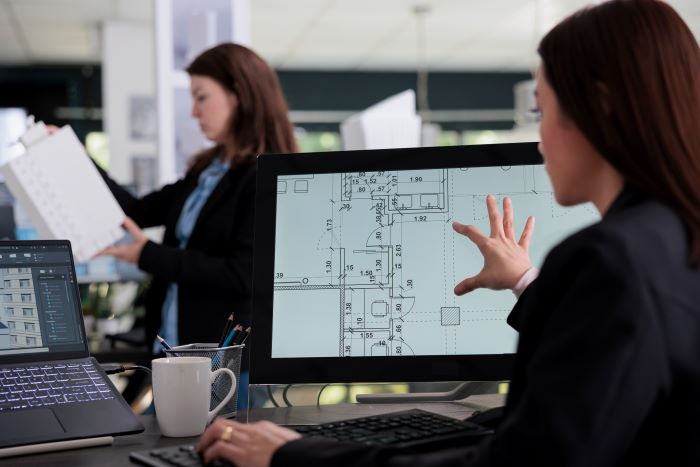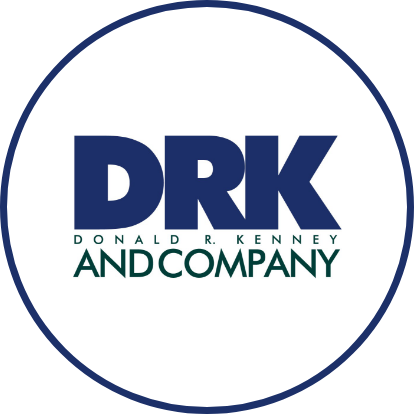Ready to take the edge off your property management responsibilities?
Managing the ins and outs of your real estate venture can get complicated fast. Chances are your to-do list is hefty and your attention is often pulled in multiple directions on a daily basis. If that sounds like you, it’s fair to say a little help would go a long way.
This is where property management software comes in. The right digital tools can help you stay on top of building maintenance, property inspections, document management and more, giving you some much-needed relief and freeing up some precious time in your busy day.
Here are four property management tools you should consider investing in.

Property Management Software
General property management software is becoming more and more necessary as the responsibilities of the industry increase. With so many tasks needing to be done, the right software can make all the difference.
You can use property management software to automate a multitude of processes, including lease tracking, tenant screening, online payments, employee communication and much more. The right software can make the entire property management process run much smoother and quicker, giving you an edge again competition and making your properties more appealing to tenants.
Features to Look for
A Range of Operations: Your software should include all the most important aspects of your business, including options for maintenance, documentation, direct tenant communication, payments and connectivity with your team.
Ease of Use: If your app is hard to navigate and confusing to understand, no one on your team – not to mention your tenants – will be interested in using it. Be sure to select software that’s intuitive and inviting to you and anyone else who will use its features.
Strong Customer Support: Apps usually run without problems, but issues sometimes crop up. If you require troubleshooting, make sure you’re using an app with a helpful service team behind it. It’ll save you time and money in the long run.
Property Maintenance Software
Keeping up with maintenance is paramount for successfully managing a property. If you need some assistance with keeping track of maintenance requests and communications, property management software could be your salvation.
Property maintenance software automates work orders, tracks assets, organizes communications and can even help you develop and maintain a budget. The software can track information for all your properties and streamline the entire maintenance process.
Features to Look for
Priority Level Settings: These will help you prioritize more urgent requests. The software will place emergencies front and center so you can see them faster.
Status Displays: Make sure you have software that shows a task’s status. Your tenants can also access these displays and see that their problem is being taken care of, which results in fewer calls and texts asking for progress reports.
Image Capabilities: If a tenant can send you a picture of their damages, you can take the guesswork out of what type of maintenance they need. Sharing images also means that receipts can be transmitted easily through the software.
Time Stamps: being able to pull up maintenance requests and see all the details (including when the request came in and when it was completed) is hugely beneficial for record keeping, and may also help you avoid legal issues.
Property Inspection Software
Inspections are an important step in any property purchase. Property inspection software can help you streamline the process of looking over a property before and after a tenant moves.
Features to Look for
Photo Storage: A property inspection app should have ample storage space for photos. This will let you look over the details and make decisions without the need to visit the property for follow-up inspections.
A Checklist: Make sure your app has a list function. You can keep a checklist of issues to look out for and reference it as many times as you need to.
Report Storage: Your software should be able to generate and store a report of your findings. It will be available whenever you need it and can be transmitted to other members of your team in the event of legal issues.
Document Management Software
Last but not least, there’s the all-important management of your documents. This tool will help you keep track of all the paperwork you go through, including important legal documents, tenant agreements, bills and contracts.
Features to Look for
User-Friendly Organization: Filing a document does no good if you and your team can’t find it easily. The ideal document management software will keep your information easy to access and have a simple-to-navigate filing system.
Document Text Search: Related to organization, having a search feature to help you locate your documents faster is a must. Instead of spending time scrolling, use software that lets you type the name of the document or folder you’re looking for. It will make a world of difference.
Automatic Backup: In the event of a document getting lost or deleted, it’s imperative that a backup be easily accessible. Always use software that includes automatic backup precautions to ensure that nothing important is lost.
Conclusion
Considering the many benefits it provides, property management software is a highly recommended necessity in today’s busy real estate world. The right software tools will help you streamline your day-to-day work, relieve pressure from you and your team, make accounting, communication and finances easier, and optimize you for success.
Ready to find your own property to manage? The experts at DRK are here to answer your questions, give you feedback and help you find the ideal space.
Take a look at the properties available in the Columbus, Ohio, area right here.
Until next time,








